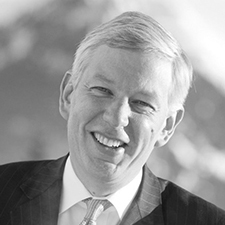In his 1759 work, The Theory of Moral Sentiments, Adam Smith wrote presciently about the interdependence between business and society. It is our belief that only a true focus on long-term value creation can maximize overall returns to both business and society.
Fighting the scourge of short-termism
A little over three years has passed since one of us (Dominic Barton) first sounded the alarm about the danger to capitalism posed by short-term approaches to managing and investing in companies.While some excellent scholarship has been published and passionate debate has taken place in the intervening years, short-termism has continued to intensify.
The main source of the problem, we believe, is the continuing pressure on public companies, from financial markets, to maximise short-term results. In early 2013, McKinsey and the Canada Pension Plan Investment Board (CPPIB) conducted a McKinsey Quarterly survey of more than 1,000 C-level executives and board members. The research looked at the ways in which this group balances short- and long-term priorities, the time frames employed to decide on strategy and investments, and the potential benefits from taking a longer-term approach to decisions.
More than three-quarters (79%) of the business leaders surveyed told us that they felt pressured to deliver financial results over a timeframe of two years or less. At the same time, 73% of respondents said that their companies should look at least three years ahead in their strategic planning.
Respondents most often cited their own executive teams and boards as the main source of pressure. Board members indicated that they, in turn, were often channelling increased pressure from short-term oriented investors, including institutional shareholders, and sell-side analysts. Twenty percent of respondents identified short-term pressure from institutional investors as a factor in their behaviour.
This ongoing short-termism in the business world is a serious concern because it undermines the ability of companies to invest and grow. Missed investment opportunities result in slower economic growth, higher levels of unemployment and lower returns for savers.
Business must lead
Winston Churchill once said, 'Never let a good crisis go to waste'.
The near meltdown of the global financial system in 2008 shook our collective consciousness and inspired much profound soul searching. More recently, though, the recovery of capital markets and rising employment levels have lessened the sense of urgency, and investors and companies have drifted back towards 'business as usual'.
At one level this makes sense: the inherent strength of the capitalist system lies in its ability to adapt to changing times and to continue to generate widespread growth and prosperity. However, in the vein of Winston Churchill, we believe that the most recent crisis should have been seized upon as a catalyst for lasting change, an inflection point for capitalism.
It could have and should have provided an opportunity for the business community to take the lead in bringing about systemic improvements designed to deliver sustained economic and social benefits to all stakeholders. Unfortunately, this has not been the case: there is not enough evidence that the system is truly adapting and that key players have been pushed into action.
We believe two groups are ideally placed in the investment value chain to ignite system-wide change. Institutional investors and corporate directors can both play a pivotal role in fostering long-term thinking and action across our investment and business worlds.
Institutional investors
Institutional investors have the capability and economic influence to be champions of long-term thinking, and they have a vested interest in generating higher economic value for all of their beneficiaries - in essence almost everyone in society.
The world's largest asset owners - pension funds, insurance funds, sovereign wealth funds, and mutual funds - together own 73% of the top 1,000 companies in the US. These funds invest on behalf of long-term savers, taxpayers, and investors. Nevertheless, many do not take a long-term approach in public markets and are not accountable for the assets they own.
In a 2014 Harvard Business Review article that bears the same name as this piece, we argued that there are a number of measures that institutional investors can take to ensure that their long-term
fiduciary responsibilities to clients are reflected in their investment practices, performance management and governance.
First, the CEO and boards of asset owners must define what they mean by a long-term investment horizon, and set out the levels of risk and short-term underperformance that they will tolerate in
the pursuit of long-term value creation. It follows that management must make sure that the portfolio is invested in line with this long-term strategy, and that internal investment professionals and external fund managers are incentivised to support the long-term approach. For example, Singapore's sovereign wealth fund, GIC, has a publicly stated 20-year horizon for value creation.
Second, asset owners should begin to act much more like private owners, creating greater corporate value through ongoing engagement and active ownership. Strategies might include taking a significant (10% - 25%) ownership stake and working with management to improve the company's performance over a number of years, before selling the stock. Smaller asset owners might form coalitions or take collaborative action to influence the strategies of public companies and share the financial burden of engagement.
Third, asset owners need to take a lead in supporting companies to move away from excessive focus on quarterly guidance and GAAP (Generally Accepted Accounting Principles) accounting to communicating the metrics and milestones that are predictive of long-term value creation. The specific long-term metrics will vary by industry sector. This places a burden on both companies and
investors. Companies must demonstrate how the metrics they report are linked to a cost advantage or increased profits.
Investors, for their part, must ensure that their own analysts are fluent in these metrics and able to integrate them into their investment philosophy and valuation models.
A leader in promoting long-term, focused dialogue between investors and corporations, BlackRock CEO, Laurence Fink, recently sent a letter to the CEO of every S&P 500 company urging corporate leaders to 'play their part by persuasively communicating their company's long-term strategy for growth'.
Finally, the governance structures of asset owners must enable them to focus on delivering long-term returns. Above all, asset owners must be clear that their primary fiduciary duty is to use
professional investing skills to deliver strong returns for beneficiaries across generations. Their board members must have the competencies and time to fulfil this fiduciary duty, and the institutions themselves must have the policies and mechanisms in place to reduce short-term pressures and promote long-term countercyclical performance.
Corporate boards
Unless institutional investors are principal owners, corporate directors are crucial to making change happen 'on the ground'.
With their unique influence and position within the investment value chain, institutional investors have significant potential to advocate for change. However, in the absence of a dominant shareholder - and many times even when there is one - the corporate board must represent a firm's owners and act as the true stewards of long-term value creation.
Overall, we believe that boards need to move beyond their traditional focus on risk and compliance and concentrate more on long-term, sustainable growth. We believe there are a few fundamental conditions that would enable boards to do this and, in doing it, to become agents of long-term, sustainable growth for the company, its shareholders, and for society.
First, board members must devote much more time to their roles and possess relevant experience that enables them to identify long-term opportunities and reduce risk.
Second, boards should create more space for management to take a long-term perspective. This approach would be supported by more effective committee structures, notably the formation of
committees dedicated to long-term strategy decisions. Third, the investor-corporate dialogue itself needs to shift. Much greater emphasis should be placed on the material metrics of longterm value. Communications should be tailored for long-term investors (rather than a 'one-size-fits-all' approach being adopted), and long-term capital should be treated as a scarce resource and managed accordingly, with care.
Shifting to action
Achieving systemic change is neither easy nor swift. A shift will be possible only if boards, business executives, and investors around the world take responsibility for bettering the system they lead. Recognising that the first step to action is often the most difficult, CPPIB and McKinsey & Company co-launched an initiative last year called Focusing Capital on the Long Term.The aim of this initiative is to develop practical structures, metrics and approaches to foster longer-term behaviours in the investment and business worlds.
We believe that by deeply engaging investment and corporate strategy professionals in this debate, we can refine and develop practical ideas and turn them into actionable recommendations. As members of this initiative, we are also committed to using our influence and reach as global leaders to generate broad awareness and debate around our ideas in the business and investment communities.
Thankfully we find ourselves in good company. Our initiative is one amongst many moving to take action on these issues. The 2014 Conference on Inclusive Capitalism is precisely the kind of forum that will encourage business thought leaders to advance ideas and begin to turn strategy into action.
Dominic Barton: Managing Director, McKinsey & Company
Mark Wiseman: President and Chief Executive Officer, Canada Pension Plan Investment Board
Find out more at http://www.inc-cap.com/


